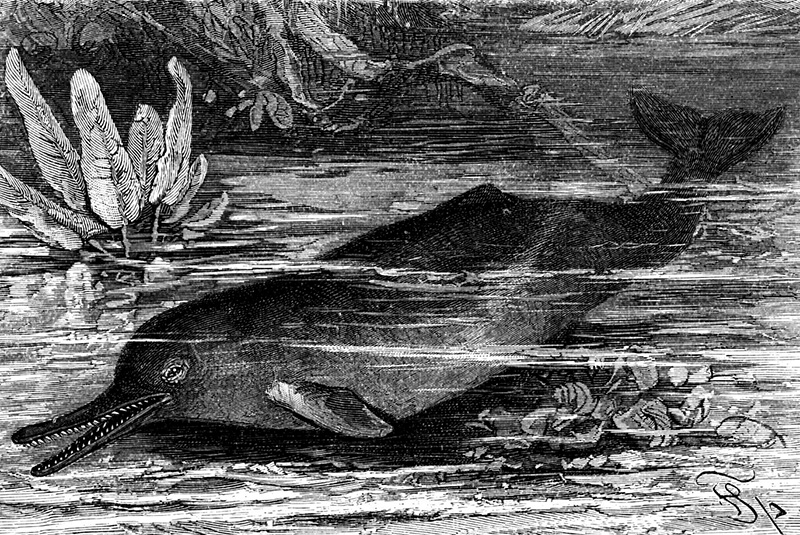In 2013, India made headlines the world over on reports that dolphins were to be seen as ‘non-human persons’. It accompanied a ban on dolphinariums; dolphin zoos that were made controversial by the Oscar-winning documentary “The Cove“.
A circular, issued by the central zoo authority, called cetaceans highly intelligent and sensitive and suggested that dolphins “should have their own specific rights and [it] is morally unacceptable to keep them captive for entertainment purpose.”
The suggestion that dolphins were ‘non-human persons’ went viral. But ethics activists who fight for this very cause will have to wait long before dolphins are accorded the same rights as human beings. In the meantime, they can celebrate that India will no longer permit such marine zoos.
The Gangetic Dolphin
The Indian Gangetic Dolphin (Platanista gangetica) may not yet have human rights, but it lives in a river that does. In 2016, a court in Uttarakhand accorded the river Ganges and its tributary Yamuna the same status as human beings. The courts drew the line because the state government had failed to keep the Ganges habitable. Decades of pollution had turned the river toxic in many places. And the Gangetic dolphin, last of an ancient family, has lost hundreds of kilometres of habitat in what was its historic home. Dams had changed the waterways – perhaps irreversibly.
Copyright©Madras Courier, All Rights Reserved. You may share using our article tools. Please don't cut articles from madrascourier.com and redistribute by email, post to the web, mobile phone or social media.Please send in your feed back and comments to [email protected]











